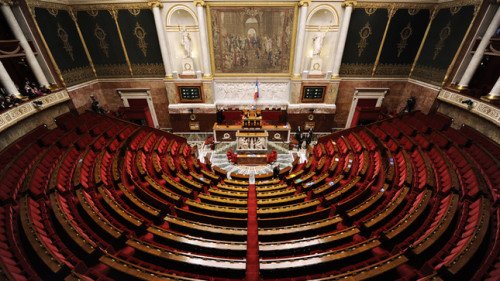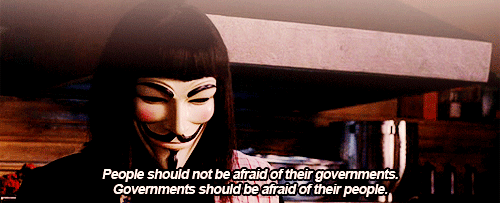Character Intro

Character Intro
As my boys happen to be lovesick fools, I decided to design their introduction like a dating profile.
Name: Whrain will do, for now.
Age: Somewhere around 21 but honestly who cares?
Appearance: We will be faster if I just tell you where my body isn’t “decorated” with scars. I somehow managed to keep most of my, way too angular, face intact. And if you would ask the narcistic asshole who calls himself my better half, he would tell you that I have hips like a very muscular girl and the prettiest pitch black hair he’s ever seen.
Likes: Swordplay… and horses. Give me the necessary time and amount of horses and I will travel from one end of the country to the other in under a month. I’m basically tied to that saddle.
Dislikes: Anyone who gets easily over affectionate and touchy. I really dislike touching, please keep your distance folks.
I’m looking for: Someone who can put up with all the shit I have been through. I’m a depressed, combative and chronically angry person, so whoever stumbles into my life, is in for a rough ride.
“Make me your monster, your loyal dog, try me, but whatever you create will stand between you and them”.
Faceclaim: Renan Pacheco
-
 whrainashland reblogged this · 6 years ago
whrainashland reblogged this · 6 years ago
More Posts from Whrainashland
OKAY TUMBLR. IT'S TIME TO SETTLE THIS ONCE AND FOR ALL.
Reblog this if you pronounce “.gif” as “GIF.”
NOT JIF,
GIF.
And here is the link for the opposite.
WE SHALL SEE WHICH ONE PREVAILS.
4 am writing is the best. You go to sleep believing yourself a genius and realize your whole chapter consists of a slight variation of the same sentence😂😂😂

I’M A WRITER! I say as I open up the word document I wrote last night in a frenzy at 4 am on three cups of bad coffee
You mean Jwraiyhn?
the only good ship dynamic
“well-groomed, soft-spoken, uses turn signals, and always smells nice”+ “eats off the floor of ihop and then gets into a fistfight in the parking lot”
Building a government
I originally posted a post in French here, which I intended to translate, and then I changed my mind and decided to create an all new post in English instead. A lot of the information from that first post will end up here, but it will be phrased differently and will have some new features.
Well, let’s dig in.
(This is very long, consider yourself warned)

Credit: Assemblée Nationale
When we talk about governments in fantasy settings, we generally think royalty, kings, queens and all that jazz. But this is very reductive of all shapes of governments which have existed on Earth through all times. Even if we focus only on the Middle Ages period, not every nation was lead by a royalty. As a reminder, Middle Ages lasted from 5th to 15th centuries approximately. That’s a long time!! Venise elected its first doge in 697, Florence was an oligarchy (the republic officially date from 1115), many city-states of the time had similar tradition of electing their leaders… But before we plunge into the shapes of governing, let’s talk about power.
I. Where does power come from?
(credits to Senna Lily)
Any person who leads a state needs power. It can be physical force, obviously, but there are other means:
Legitimate Power: it comes from the position or the title of the person. Basically, the person who was chosen as the chief by many people is the legitimate chief and has the power to act as such. It can also come from “divine power”, a formulation used by the Kings of France to mean they got their power directly from God, or be a birth right, or a vote. Legitimate power is in direct opposition to usurped power. -> What is considered legitimate in your setting?
Coercion: the ability to punish. It’s the justice system and control of the police. It’s violence and threats. It is the ability to give (or refuse to give) a reward. It’s a penalty. It’s the ability to reduce effectively others resources. It’s exile or execution. People obey, because of coercion, in the hope to get the reward, while avoiding the punishment. People who detain this power are those who command an army (generals, nobility, militia, mercenaries, police…). They may plan a Coup against the government in place if they disagree with it.
Money and Resources: it’s direct and personal access to money and resources (food, materials, equipment, technology…). In addition to trade and finance, it is also the ability to raise taxes and to own land. In many feudal countries, the whole land was once said to belong entirely to the king, who then gave it to the nobility, temporarily or permanently.
Allies: the will of people to support you, which they manifest through a vote, familial or contractual webs (including treaties). Most of the time, these alliances indicate a common interest (syndicates ally to obtain a new favorable law for employees), or in the hope of future benefit (new lands and titles given by the future new king).
Credibility: can the people believe the discourse of their government? If the people are rational, they will base their judgment on expertise and reliability. In the end, credibility is a leader’s ability to convince people to do as they say, through any means of communication (speech, press, even omens could have their use here…). Obviously, controlling the media directly or through alliances can be of great help to establish this credibility.
Information: access and ability to use information, even to hide it or to falsify it. Spies and fake news have their place, right here. Spreading lies can also be useful to hurt your enemies reputation, as well as to disturb or maintain the peace. -> who is the most informed person in your world? Is it your king, his advisor or his enemy?

Credit: picture from Miss Sloane, edited by @carol-danvers
II. The shapes of Government
Monarchy
Literally, monarchy means the government by one person, the monarch. Though we generally picture a royalty, it could also be a presidency (where the president has all powers: executive, legislative and judicial) or a dictatorship.
But even monarchies can present themselves in different shapes: elective (the Pope), constitutional (where a Constitution specify and/or limit the monarch’s powers), parliamentary (where an assembly forms a countervailing force), or absolute.
Oligarchy
In an oligarchy, a few people govern the many. A criterion determines which few lead the nation. It can be revenue, gender, age, expertise, or a combination of all.
Oligarchies are either institutional or de facto. In the first situation, the oligarch government is formalised in the laws, and it is clear who can and who can’t participate in it. In Florence, a law was created specifically to discard the nobility from the government, allowing the merchants and members of the main corporation to govern their city.
In a de facto oligarchy, the government is progressively controlled by an elite without any formalism needed. Think about how rich people have the power to exclude others just by making things (education, means of transportation…) more costly and thus less accessible to the many.
Democracy
The government by the people can be exercised directly or indirectly. Directly, everyone (some limits, such as age, can be implemented) votes for every decision. Indirectly, everyone elect representatives who then vote for every decision. You can also find democracies which mix both system, where certain decisions must be taken by everyone, while others are left to their representatives.
I mentioned only age as a limit, as it is an obvious one (people need to be able to understand the decision they’re making), but there are others. Nationality comes to mind. Just be careful not to limit citizenship too much or you could end up with a government who is a democracy in name only, like Athens was.
Empires (a side note)
Technically, empires are not a form of government. They are defined by the union of more than one people or country under a centralised power (some definitions also add expansion ambitions, and feelings of superiority). Though most infamous examples generally are monarchies, empires could very well be oligarchies or democracies.
Empires who lasted the longest had an ideology under which they could rally their population, mostly with a common religion (Christianism for the roman empire, Islam for the caliphates, Orthodoxy in Russia, Catholicism for the Habsburg…). But, though their shared ideology strengthened them, no empire ever lasted millenniums.

III. The Ideology
Every government subscribes to a certain set of ideologies, which shapes the laws and regulations they chose to implement over the people they govern.
Patriarchy / Matriarchy / Egalitarian society
(Please note, this part might give the impression, there are only two genders. My intention is not to erase non binary, genderfluid or genderqueer people, but to keep things simple, so in advance: I am sorry if I hurt anyone’s feelings).
Patriarchy and matriarchy happen when one gender take over the control of the totality or the majority of the power sources. The government will be lead by people of the dominating gender, so will be companies and religions. Values associated with the gender in power will be admired by society and laws will reinforce their status. If a person of the dominating gender shows qualities which are perceived to belong to the dominated one, they will be put on the ban of society and seen as a deviant (and same thing the other way around, btw), making them unlikely to hold any power unless they also happen to possess some useful resources or relationships.
If you create a matriarchy, please, by all means, do not make it a mirror of a patriarchy. What I mean is, don’t have women be warriors and men take care of the children. Instead, have pregnant women keep their government position without it ever being questioned, have laws which regulate the men bodies, have contraceptive drugs for men only, have values such as quietness and moderation as the highest ones, have physical strength seen as debased, have dismissive comments about men and their testosterone, have jobs associated with women seen as the most valuable (like nursing or teaching) and with the highest earnings, consider not having a marriage per say as there can be no question of who is a child’s mother…
As for egalitarian societies, they should not have any gender dominating the other, and so a government should have parity. Non-gendered inheritance laws should already exist. If your society is egalitarian, but its government is 70% male, I will call you a liar. Or you better come up with a good justification other than “women prefer to take care of their home”. In such a society, a profession can still be seen as lower, not because it is mostly occupied by one gender, but because it is associated with another taboo (think about jobs in relation with death in Japan). Laws will reflect equality between genders, either by having them forcibly inclusive (which could indicate society was not all always egalitarian), or by having them implicitly inclusive through the use of a genderless language*.
* I am not saying the language of a society, which was always egalitarian, is necessary genderless, but that the law will use words which erase gender: instead of man/woman, you’ll use person/citizen.
Capitalism / Socialism
Though capitalism and socialism are the two antonymous economic systems, most States have implemented mixed systems, leaning more on one side of the equation than the other depending from the set of values their leaders adhere to. All States, even the most liberal, are forced to embrace some social values as the only mean to ensure the creation and maintenance of basic infrastructures such as roads.
In capitalism, all the means of production are privately owned in the aim of profit. In consequence, investments are decided by the owners of resources and, in theory, prices and distribution are decided through competition. Other common characteristics to capitalist systems include: accumulation of capital, waged labor, price system, competitive markets, voluntary exchange (often formalized with a contract).
Different models of capitalism exist. Corporate capitalism is dominated by hierarchical and bureaucratic corporations. In State capitalism, the state-owned companies dominate the market where they seek to make profits. Advanced capitalism is our global modern system characterized by the concentration of activities in a few large firms or groups, a reliance on the State to stabilize the markets, and wages used as incentives. Financial capitalism is dominated by the people who own the funds (the banks or private loaners) and generally born from a commercial capitalism…
Socialism was first and foremost thought as the opposite of individualism. Other words have been used to qualify a socialist economy, such as co-operative, mutualist, associationist and communist. The distinction between socialism and communism only date from the Bolshevik Revolution of 1917.
Obviously, because of the way it was constructed, socialism is very critic of capitalism. Its main reproaches are the creation of wasteful industries and practices, a will to create demand instead of satisfying the pre-existing one, the pursuit of irrational activities which results in economic bubbles and the concentration of power and wealth in the hands of a few people.
Socialism’s goal is to reduce poverty, social oppression, and disparities in wealth. To accomplish this, it puts community first and encourage the shared ownership of resources. Its main means are economic planning and scientific administration. It also tries to achieve, through incentives coming from the top (i.e. the government) a social environment which would be more favorable to the system.
Finally, socialism also considers creativity to be essential to human nature, and one of the finality of this ideology is to reduce the length of labor to ensure everybody has the time to engage in their creativity.
Fascism / Nationalism
Though both ideologies have a few things in common, they are not one and the same. Also, not everybody agree on what past governments should be called fascist (some suggest that Nazi Germany is not, some say it is…).
Nationalism is, for a people, to preserve or gain sovereignty over its “homeland” (the limits of said homeland may go beyond what the people of the nation inhabit and result in expansionist strategies). Nationalism implies the definition of a national identity with its culture, its language, its religion, its belief in a singular history. Generally leaders of such a movement/State will talk about a cultural renewal (or its preservation), and use rallying symbols recognizable by all (such as flags, anthems, clothes…).
Let’s note, it is possible to imagine a multinational nationalist State, where every national minority would be able to express freely its national identity (with even the possibility of having representatives for each minority). The feeling of unity, of a nation would emerge from the will of the people to continue to live together in a multicultural society. Common symbols would reflect the diversity of its people.
As for fascism, though we find the same mythic core and use of symbols, it distinguishes itself from nationalism by its inherently violent nature. Indeed, fascism consider that not all violence is negative and that political violence, war and imperialism can bring national rejuvenation.
Fascism is also characterized by the suppression of all opposition, often with the complicity of the elites in place, by a mixed economy to attain the goal of self-sufficiency through protectionism and interventionist policies, by military citizenship where everybody’s role is well defined and masculinity is promoted, by self-determined culture and victimhood to oppose a previous period of decadence (often imaginary) and give birth to a cult of unity and purity, which can only be achieved through the purge of the “degenerates”.
Religion
Religion and power instances have been intertwined throughout History, either by the interpretation of omens (such as flying birds) before an important decision, or by providing advisors to the State (Mazarin and Richelieu’s names come to mind), or by establishing a temporal State lead by a timeless authority (the Vatican).
Religion have permeated our cultures and our laws. Even secular States, such as modern France, are still under the influence of religion. Breaking away from it has required social changes followed or paralleled by legal changes.
Sometimes, these changes have merely reflected the passing of a religion’s influence in favor of another (the Roman empire was polytheist before embracing christianism).
What taboo, what family structure are seen as prominent by the dominant religion will very likely be reflected in the laws and in the government structures. Furthermore, in the presence of a well organized religion, such as the Catholic Church, one must acknowledge not only its moral power, but also its economical one. It is not without good reason the French Revolution chose to abolished all Church’s privileges (suppression of a special tax, nationalization of its properties…).
Conservatism / Progressivism
Conservatism is defined, first and foremost, by its attachment to traditions. Obviously, depending of where and when, what people call traditions may look very different. A conservative government will do its best to keep the statu quo, to slow changes and transformations, especially social and economic ones. Conservatism also embrace organic solidarity (born from the specialisation of economic actors and forcing them to collaborate because of their interdependence), stability and continuity, as well as the defence of property rights.
When conservatism tends to radicalism, its discourse will change from maintaining the traditions, to their regeneration, implying the model (often idealised past) has been lost and needs to be restored for the wellbeing of society.
On the other hand, progressivism embrace change and reforms as a way to improve society. It encourages changes at all levels (social, economic, scientific, technologic…) as the one and only way to improve human condition. This definition may give you the impression progressivism is necessarily better, but let’s not forget that, in the past, it has been associated with eugenics and alcohol prohibition. What is seen as progressive depends greatly on what is perceive as tradition in your universe.
In all honesty, I could keep talking about ideologies, because they are so diverse and cover so many subjects. In the end, you should remember only two points when it comes to ideology : how your government think society should work, and how it intends to achieve that ideal.

Resources
Links: - 16 types of governments infography - List of forms of governments on Wikipedia - Ted-Ed Athenian Democracy - On Mythcreants: Matriarchies, patriarchies and beyond, Creating matriarchies - Amazing series about politics by Senna Lily “Politics : The Game, The Board, The Players” - 1st part (credits go to her for the first part of this article)
a few articles by @wondrousworldbuilding about Politics and about Factions,
Books: (I could not find translations for the titles in French) - Nouveau manuel de science politique, Editions La Découverte (a class book for politic sciences, very heavy, maybe start with something else to read on the subject) - La cité dans le monde grec, Raoul Lonis, Editions Armand Colin (3rd part mostly) - The prince, Machiavel - Bréviaire des politiciens, Cardinal Mazarin, Editions Arléa - The Communist Manifesto, Karl Marx and Friedrich Engels - The Analects, Confucius - The Spirit of the Laws, Montesquieu - The Art of War, Sun Tzu (the book talks about war strategies, but they can apply to other contexts, including politics) - The Republic, Plato - Politics, Aristotle
you can find a pretty nice goodreads list here, it references a lot of classics about politics.
Final Words
If you’re still here, congratulations, you’re done !!
I merely wanted to write one last thing: if you have questions, you can drop me a message anytime. It doesn’t matter if your question is directly related to this post or not, or if it is something very specific in relation to the politics of your universe. I may not be an expert on the subject but I’m more than willing to give you my two cents, if you need help :)
Keep reading

CELEBRATION – ↳ just because, to show my appreciation for y’all
[ to join ]
⇾ follow me ⇾ reblog this post ⇾ send me an ask with one of the options ⇾ blacklist #evacelebrates if you don’t want to see these posts
[ options ]
🌺 – for a wip / character playlist (ex.) – give me a vibe and some genres as well as the info mentioned below
🌸 – for a wip poster edit (ex.)
🥀 – for a character poster edit (ex.)
[ important ! ]
please provide me with enough information on your chosen wip / characters for all these options !! a tag and page, if you have it a pinterest or weheartit board and a general aesthetic and summary